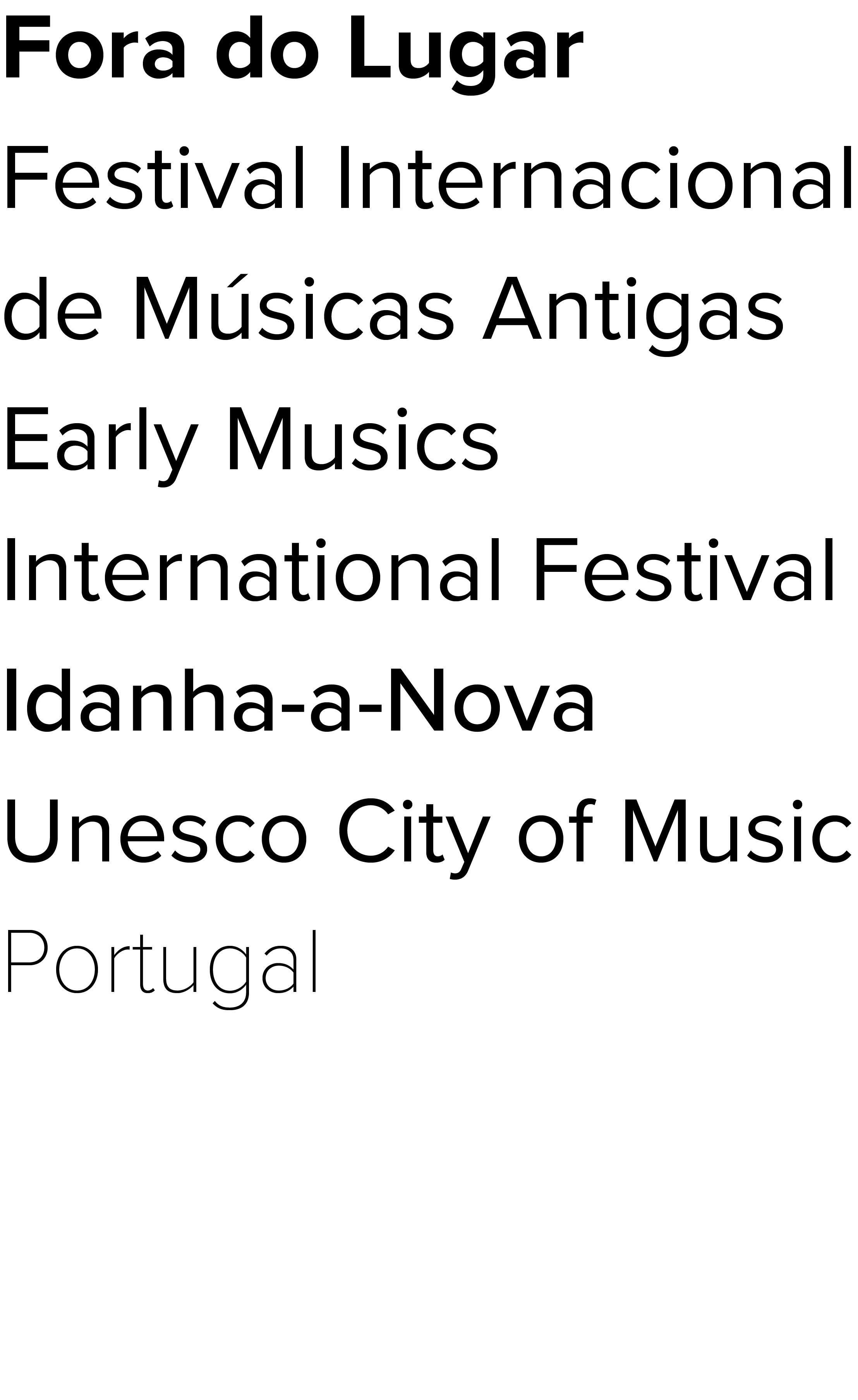Concerto
Concert
19.11.2022
21h30
Sephardica Espanha Spain
MONSANTO
LAGAR (SALÃO DE FESTAS)
Emilio Villalba dir. musical, alaúde|lute, viola, citola|citole medieval, santur
Sara Marina clavisimbalum, adufe, bendir, riq, darbouka
Ángeles Núñez soprano, castanholas|castanets, cascabeles
Música de mulheres sefarditas
Music of sephardic women
1. Alhekem kejal anón. sefardita
2. Morena me llaman anón. sefardita
3. A la Una yo nací anón. sefardita
4. La Rosa Enflorece anón. sefardita
5. Ven querida anón. sefardita
6. Cantemir VII, Dimitrie Cantermir tradicional medieterrâneo
7. Los Guisados anón. sefardita
8. La Comida la mañana anón. sefardita
9. Una matica de ruda anón. sefarditaa
10. Axerico anón. sefardita
11. Los Caminos de Serkedji anón. sefardita
12. La Cantiga de Fuego anón. sefardita
Women played a fundamental role in the dissemination and preservation of Sephardic music, consisting of a set of traditional songs that have been preserved by the exiled Jewish communities of the Iberian Peninsula, which these communities knew as Sepharad.
The music preserved by the Sephardic tradition is a round trip: departure and return. It is a music with medieval roots that was transmitted orally, absorbing various musical styles over time according to the geographical areas where the Sephardim settled around the Mediterranean, including North Africa, the Balkans, Greece and Turkey. Researchers, historians, musicologists and musicians have compiled testimonies, songs and recordings of the last Sephardic women through adventurous fieldwork, allowing us to listen to and enjoy this musical heritage again today.
This concert brings to the stage a select compilation of the most beautiful preserved music interpreted as it was in the past and with historical instruments such as adufes, rebecs, lutes and a psaltery. Love songs, romances and lullabies that have been sung for hundreds of years and which continue to be sung from grandmothers to grandchildren to this day.
Sephardica is a project specialised in the study, recovery and dissemination of historical music and instruments, fundamentally from the artistic period between the 8th and 16th centuries. The musicians have worked together for more than 10 years, offering medieval music concerts throughout Spain and greater Europe that combine theatre, narrative and a deeply rich timbre in their interpretation of pieces. They have achieved great public and critical success at festivals such as Pórtico do Paraíso (Ourense), Femás (Seville), Maremusicum (Almería), Sephardic Festival (Córdoba, León, Girona…), Noites d’Encanto (Portugal), IKFEM (Portugal-Spain), Les heures Musicales (France), Festival Caprichosm Festival Fora do Lugar (Portugal) Musicales (Comillas), Festival Tres Culturas (Toledo) and Nights in the Gardens of the Real Alcázar (Seville).
As mulheres desempenharam um papel fundamental na divulgação e preservação da música sefardita, a qual consiste num conjunto de canções tradicionais que foram preservadas pelas comunidades judaicas da Península Ibérica no exílio, e que estas conheciam pelo termo Sepharad.
A música preservada pela tradição sefardita é uma viagem completa, com partida e regresso. É uma música com raízes medievais que foi transmitida oralmente, absorvendo vários estilos musicais ao longo do tempo, conforme as áreas geográficas onde os sefarditas se instalaram no Mediterrâneo, incluindo o Norte de África, os Balcãs, a Grécia e a Turquia. Investigadores, historiadores, musicólogos e músicos compilaram testemunhos, canções e gravações das últimas mulheres sefarditas através de um ousado trabalho de campo, permitindo que hoje escutemos e desfrutemos novamente deste património musical.
Este concerto traz a palco uma compilação selecionada das mais belas músicas preservadas, interpretada tal como no passado e com instrumentos históricos, como adufes, rabéis, alaúdes e um saltério. São canções de amor, romanças e canções de embalar que foram cantadas há centenas de anos e que, hoje em dia, continuam a ser cantadas por avós a netos.
Sephardica é um projeto especializado no estudo, recuperação e divulgação de música e instrumentos históricos, fundamentalmente do período artístico entre os séculos VIII e XVI. Os músicos trabalham juntos há mais de 10 anos, realizando, por toda a Espanha e Europa, concertos de música medieval que combinam teatro, narrativa e um timbre profundamente rico na sua interpretação de peças. Alcançaram grande sucesso junto do público e da crítica em festivais como Pórtico do Paraíso (Ourense), FeMÀS (Sevilha), Mare Musicum (Almería), festivais de música sefardita (Córdoba, León, Girona, etc.), Noites d’Encanto (Portugal), IKFEM (Portugal-Espanha), Les Heures Musicales (França), Caprichos Musicales (Comillas), Fora do Lugar (Portugal), Festival Tres Culturas (Toledo) e Noches en los Jardines del Real Alcázar (Sevilha).




